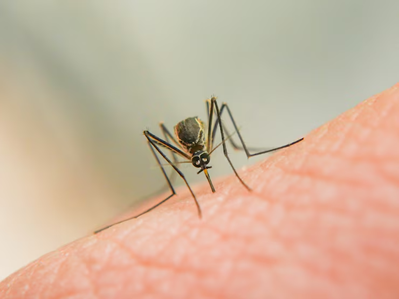A viral infection from the dengue virus (DENV) spreads to humans via mosquito bites. Approximately half of the world’s population is at risk of contracting dengue, with an estimated 100–400 million infections occurring annually.
Signs and Symptoms
Symptoms of dengue appear 4 to 10 days after being bitten by an infected mosquito and symptoms range from mild to severe. Children and first-time sufferers may experience milder symptoms compared to older individuals.
Common symptoms, which usually last between 2 to 7 days, includes
- High fever
- Headache
- Swollen lymph glands
- Intense joint and muscle pain
- Skin rash (which may appear 2 to 5 days after the fever begins)
Other serious signs to watch for include:
- Abdominal pain and tenderness
- Frequent vomiting (up to three times in 24 hours)
- Nose or gum bleeding
- Vomiting blood or blood in stool
- Fatigue, restlessness, or irritability
Diagnosing Dengue Fever
Two main types of blood tests are used:
- Virological tests: Directly test for the virus, although these can be complex.
- Serological tests: Detect antibodies produced in response to the infection.
It is advisable to seek medical attention if dengue symptoms develop, particularly after international travel.
Managing Dengue Fever
Managing dengue fever involves supportive care:
- Fluid Intake: Staying well-hydrated is crucial to prevent dehydration. Oral rehydration solutions help to replace lost fluids and electrolytes.
- Pain Relief: Medication is recommended for fever and pain management. Avoid non-steroidal anti-inflammatory drugs (NSAIDs), as they can increase the risk of bleeding.
- Hospitalization: Severe cases may require hospitalization for monitoring and supportive care, such as fluid replacement and, in some cases, blood transfusions.
- Rest: Sufficient rest is essential for recovery.
Monitoring and Complications
It is important to monitor symptoms and seek immediate medical attention if they worsen. Complications, such as Dengue Hemorrhagic Fever (DHF), can occur, characterized by high fever, bleeding, liver enlargement, and circulatory failure. DHF can lead to Dengue Shock Syndrome, which is potentially fatal.
Preventing Dengue
Prevention focuses on avoiding mosquito bites and reducing the mosquito population. Dengvaxia, a vaccine approved in some countries, requires three doses over six months. Preventative measures include using mosquito repellents, wearing protective clothing, ensuring proper window and door screens, and eliminating mosquito breeding sites by regularly checking and maintaining areas where water can collect.




